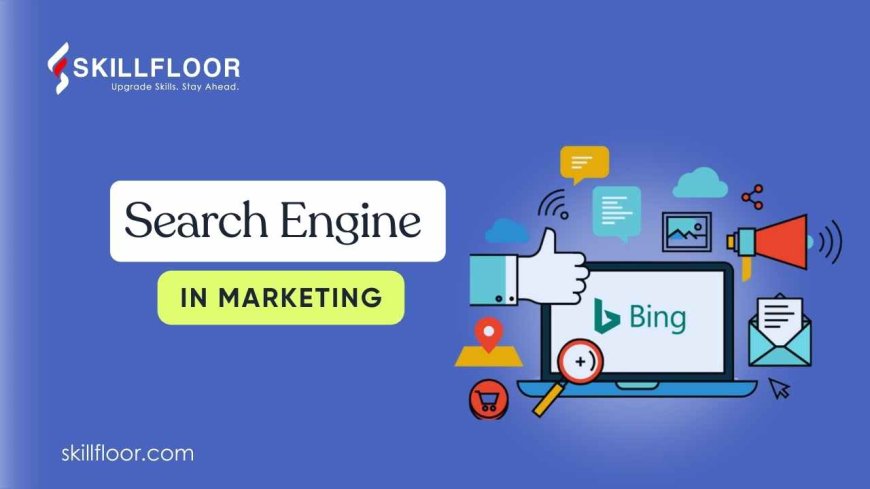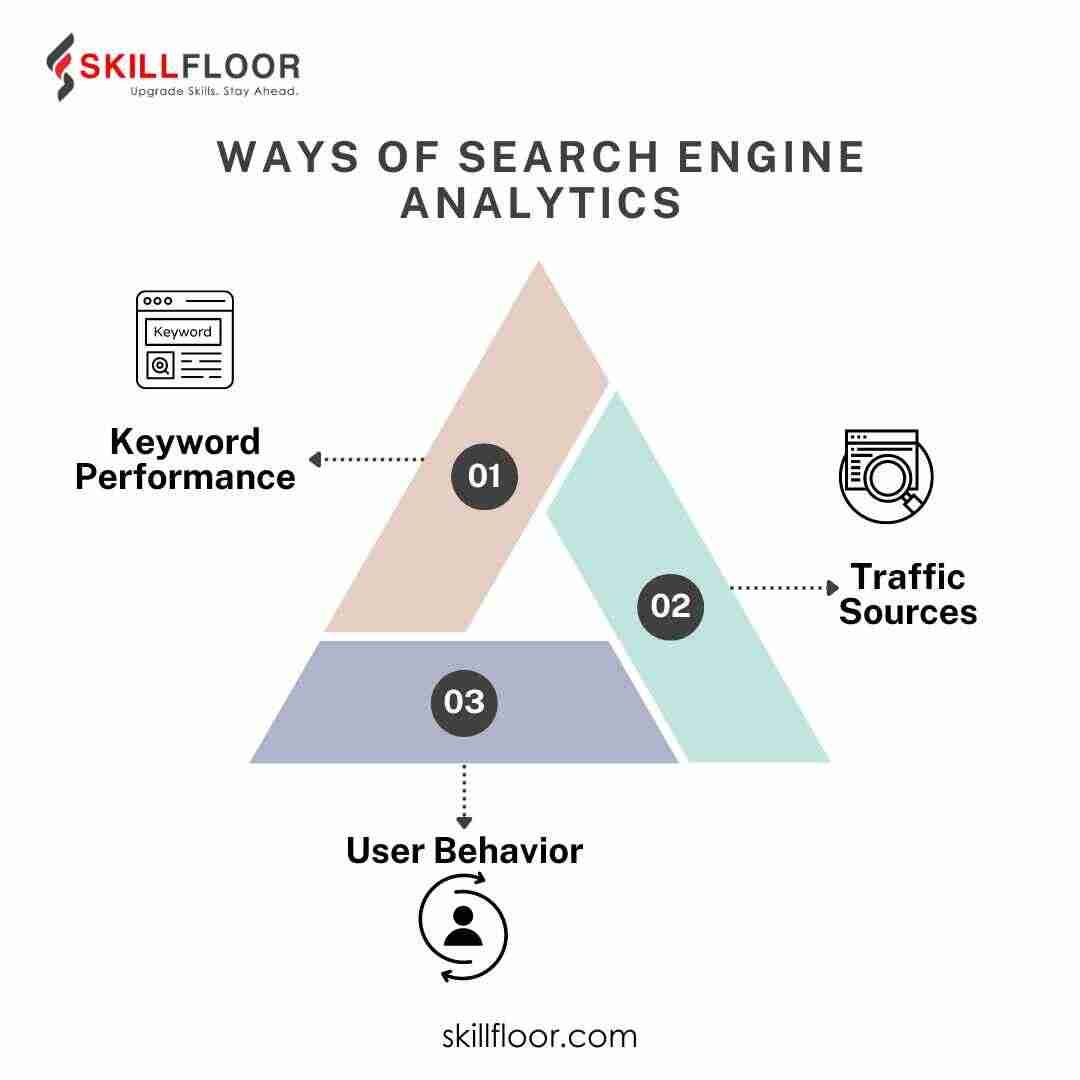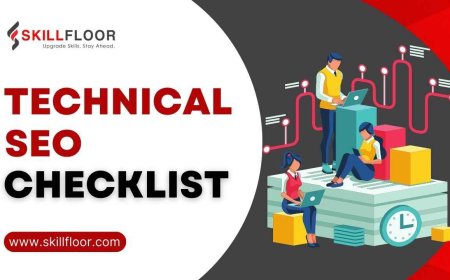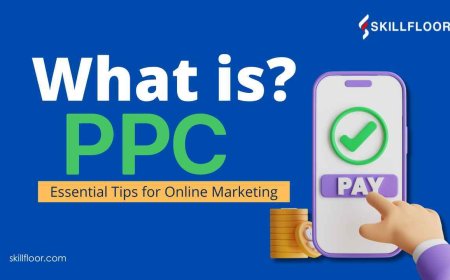Understanding the Role of a Search Engine in Marketing
Explore the pivotal role search engines play in marketing strategies. Learn how they drive business growth and optimize digital marketing efforts.

In the age of digital technology, search engines play an important role in determining how companies interact with their customers. The term "Understanding the Role of a Search Engine in Marketing" often comes to mind while discussing online marketing, highlighting the importance of search engines in modern strategies. A search engine is more than just a tool for information extraction; it's an effective doorway that affects visibility, interaction, and eventually success. Making sure your content shows up highly when visitors search for relevant terms is the fundamental objective, no matter whether you choose to explore search engine marketing (SEM) or search engine optimization (SEO). An effective search engine connection will expand your audience, send relevant traffic to your website, and turn site visitors into loyal customers. Search engine involvement in marketing is both an art and a science, with an array of factors to take into account, from data to keywords. As such, it is an essential component for any organization that wants to thrive online.
What is a Search Engine?
Let's start with the basics. A search engine is an electronic device that looks through the broad internet to find content related to your search term. Google, Bing, and Yahoo search engines scan through many webpages to deliver the most relevant results when you enter a query or keywords.
Imagine a search engine as the digital version of a library. You just put in what you need, and the search engine finds the most relevant books or webpages for you—no need to trawl through endless shelves.
The first step to becoming an expert in digital marketing for marketers is learning how search engines operate. The aim is to ensure that your website shows up prominently in search results when people look for goods or services linked to your company.
Search Engine Marketing (SEM)
Let's now examine how marketers use search engines to their advantage. The phrase "search engine marketing" (SEM) refers to a broad range of tactics used to improve a website's position on search engine results page (SERPs). To increase traffic to your website, you must use both paid advertising and organic search engine optimization.
Paid Search Advertising: Paid search advertising refers to the technique of companies paying the top position in search results for their advertisements. The term "Ad" is typically used to identify these advertisements. You can bid on keywords on platforms like Google Ads, which enables you to pay to show up when people search for terms associated with your company. It's a rapid method of increasing visibility and drawing in new clients, particularly if you're aiming for really competitive keywords.
Search Engine Optimization (SEO)
The art and science of improving your website to increase its visibility in natural search results is known as search engine optimization, or SEO. It has to do with improving the way search engines like Google view your website. Your website will rank higher for related keywords in search results the more optimized it is.
On-page SEO: This is the process of improving your own website. Make sure your website is easy to read and browse, use clear headlines, and use the proper keywords. It improves the way both users and search engines see your website.
Off-page SEO: The goal of off-page SEO is to obtain links from other websites to yours. When they do, it communicates to search engines the significance and reliability of your website. It resembles receiving approval from other websites.
Technical SEO: This refers to making technical website improvements. Verify that it is safe, secure, loads quickly, and functions on mobile devices. It raises your website's search engine ranking.
Search Engine Analytics
You have to understand how your audience uses your website in order to get the most out of search engine marketing. Search engine metrics are useful in this situation. You may learn more about the functionality of your website, user behavior, and how people find you by using tools like Google Analytics.

-
Keyword Performance: Analyze your site's keyword performance to see what terms people use to locate it. To improve your website and attract more people, concentrate on these keywords.
-
Traffic Sources: Determine whether people find your website via search engines, advertisements, social media, or by entering in your address directly. This aids in the allocation of your marketing budget.
-
User Behavior: Observe how users interact with your website. Which pages do they look at? For what duration do they remain? Are they departing abruptly from certain pages? Make use of this information to improve your website and maintain user engagement.
The Role of Content in Search Engine Marketing
The basis of any effective search engine marketing plan is content. Users want and search engines love, relevant, high-quality information. Your material, whether it be infographics, videos, or blog entries, should be created with your audience's needs and interests in mind.
Keyword-Rich Content: Use the words your audience searches for in your content.. Don't overuse it, though; only include them organically in relevant and engaging content.
Relevance and Freshness: Continuously update and create fresh information. Keep your content fresh and relevant to draw in visitors.
Unique Formats: Make use of a variety of content formats, such as interactive tools, images, and videos. These add interest to your website and may raise its search engine ranking.
Local SEO and the Power of Local Search Engines
Local SEO is innovative for companies that specialize in particular regions. Optimizing your online presence to draw clients from local searches is the main goal of local SEO. For companies that depend on local customers, such as restaurants, retail stores, and service providers, this is important.
Google My Business: Create and maintain your profile there. This makes it easier for clients in the area to find your business by enhancing its visibility in local searches and on Google Maps.
Local Keywords: Incorporate your area into the content of your website. This helps you show up in local search results by telling search engines where your company is located and who you serve.
Local Citations and Reviews: Obtain favorable customer reviews and get listed in local directories. This fosters trust and demonstrates to search engines that your company is reputable and well-liked in the neighborhood.
Future Trends in Search Engine Marketing
Search engine marketing is an evolving field that is always changing. Being ahead of the curve requires you to monitor new trends and modify your approach accordingly.
Voice Search: More people are using their voice to search with smart speakers and assistants. They use natural, conversational questions. To optimize, use longer phrases and answer common questions clearly.
AI and Machine Learning: Search engines are getting smarter with AI. They understand what users want better and provide personalized results. Create content that directly meets your audience's needs.
Visual Search: People can now search using pictures, like with Google Lens. To optimize, use high-quality images and make sure they’re properly labelled for search engines.
Mobile-First Indexing: Since many people search on their phones, search engines focus on mobile-friendly sites. Make sure your website works well on all devices to keep it ranking high.
Knowing and using search engines is essential for effective marketing in today's digital world. Search engine optimization and keeping up with emerging technologies such as voice and visual search allow businesses to become more visible, draw in targeted traffic, and turn website visitors into devoted clients. Adopting these strategies guarantees continued success on the internet.





























































